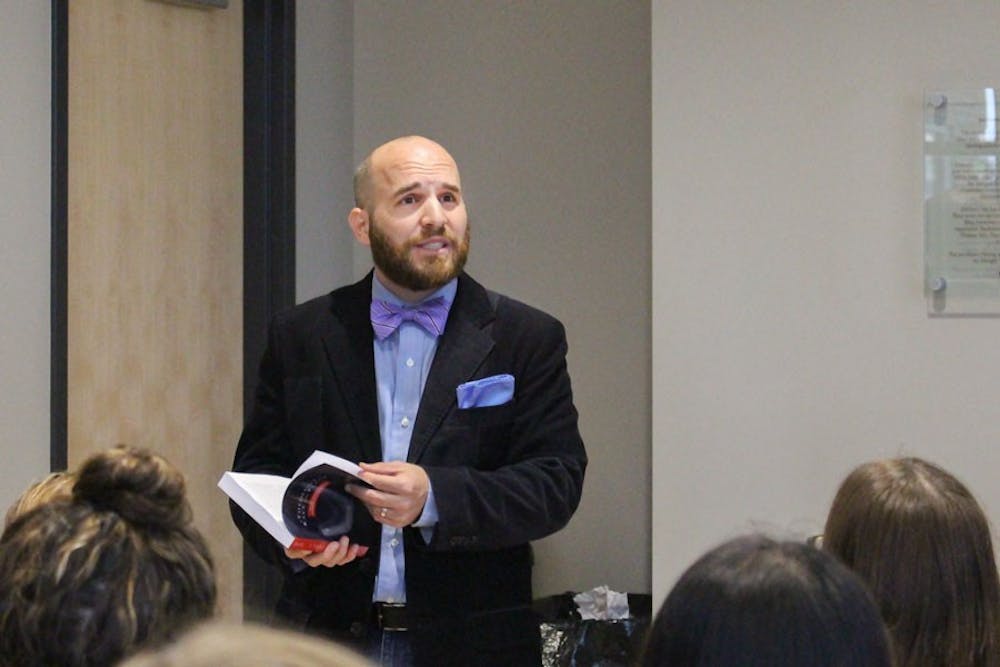By Rebecca A. Schriner | Echo
Who has more to say about racial reconciliation than a pastor serving in an urban community? Visiting Assistant Professor of Theology Andrew Draper published his book on the subject of race in late August 2016.
"A Theology of Race and Place" begins with studies surrounding racial tension, such as the Trayvon Martin case. He also brings his personal experiences of black and white relationships into the conversation. Draper sees the radical schism in the minds of his community members.
"Within rhetoric of ethics and beauty, the racial imagination has tended to align both criminality and immorality with blackness while aligning guardianship and goodness with whiteness," Draper says on page nine of his book.
He identifies that this thought process may be a subconscious imprint left from the days of colonial slavery, but also that we need to reconcile those racist thoughts within ourselves and the Church because the effects have been devastating.
"Since Christian self-identity in the modern world tends to function within the trope of race, skin color is the assumed index of the distance one has had to travel to be grafted into the narrative of salvation," Draper says on page 270.
Although the introduction and conclusion provide great insight and stir awareness within any reader, this book may be difficult for the average reader to understand-unless they have a theological background. The bulk of this book is a dense, academic study of racial reconciliation. Throughout the book, Draper evaluates the claims of theologians J. Kameron Carter and Willie James Jennings along with others. The information provided explains many theories about how we should seek truth as "architects of whiteness," brothers and sisters in Christ, created beings and more.
Draper does a phenomenal job documenting the external sources and providing extensive footnotes to clarify concepts. He also recommends more theology books focused on racial reconciliation.
In his conclusion, Draper includes his view of how racial reconciliation should play out. He says it should be like people of all races are guests in each other's houses. Draper says on page 312, "If Christ is the New Human who inaugurates a new way of being in the world for all peoples (a new theological anthropology) how can the Incarnation be embodied in anything other than a joined life?"





